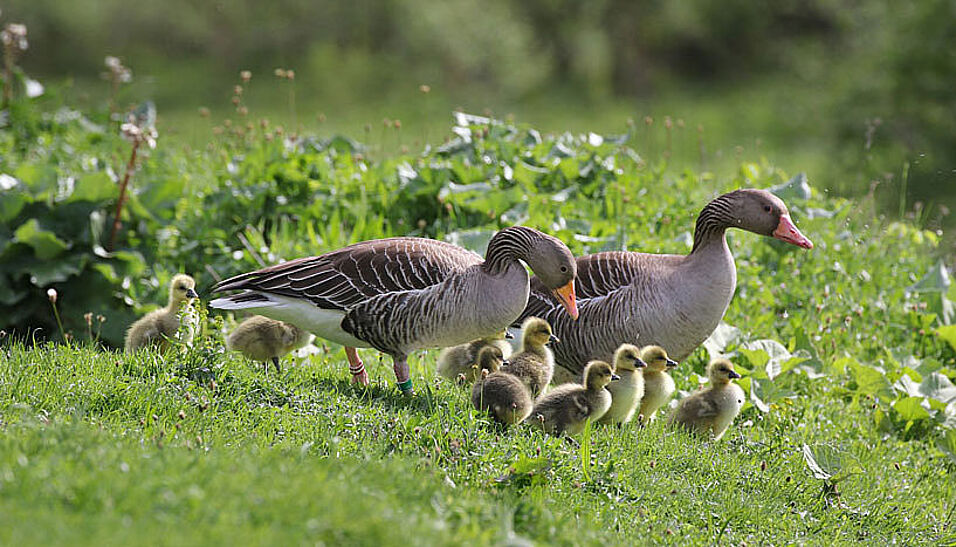"It has been shown that the differentiation of the behavioral role between the parents varied with the development phase, i.e. the age of the gosslings," reports Georgine Szipl, researcher at the Konrad Lorenz Research Center. The researchers found that especially during the first ten days after hatching, mothers were more likely to forage, but fathers were more alert and aggressive towards other members of the flock. The females compensate during this time the weight loss during incubation. Therefore, the males must be more vigilant to give the females the opportunity to eat safely, which has important implications for future breeding trials.
Publication in „Journal of Ornithology“: Szipl, G., Loth, A., Wascher, C.A.F., Hemetsberger, J., Kotrschal, K., Frigerio, D. (2019). Parental behaviour and family proximity as key to gosling survival in Greylag Geese (Anser anser). DOI: doi.org/10.1007/s10336-019-016

